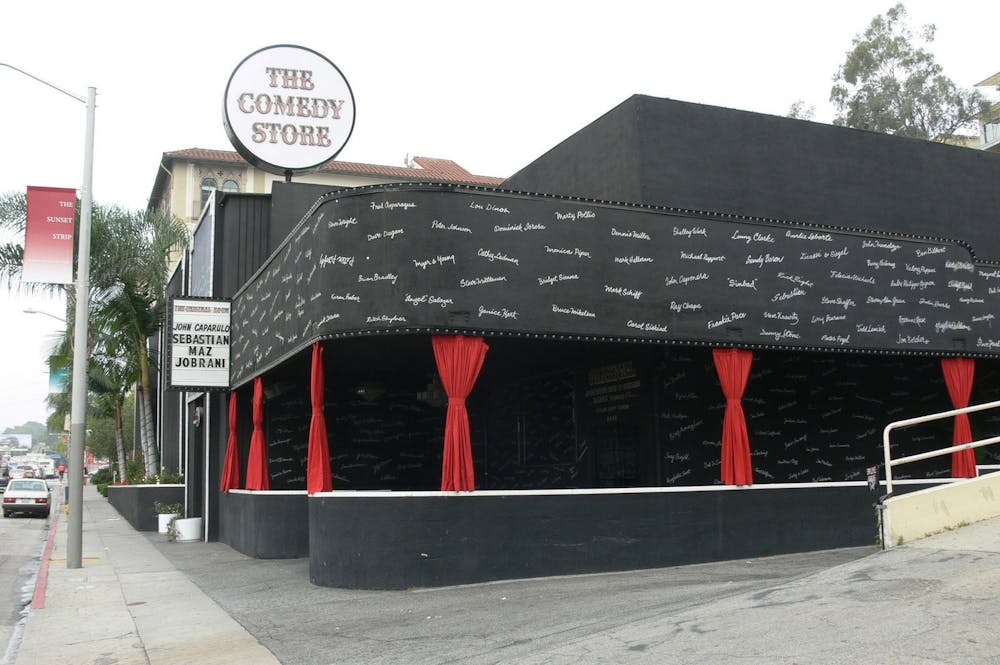Prime Video’s new docuseries “Phat Tuesdays” features interviews with living legends like Dave Chapelle, Snoop Dogg and Anthony Anderson. Through these interviews and old footage, the three-part series highlights the history of a weekly all-Black comedy show at the famous Los Angeles comedy club The Comedy Store called Phat Tuesdays.
Viewers may already be familiar with The Comedy Store from the October 2020 Showtime documentary series of the same name about the historic Hollywood establishment. However, “Phat Tuesdays” is able to showcase a different perspective of the same place. Even though many of the celebrities interviewed uphold The Comedy Store as a significant place for the careers of many entertainers, they also acknowledge that numerous people who operated or performed at the comedy club maintained biases preventing marginalized groups from performing.
“Phat Tuesdays” is a three-episode series. Episode one centers on the process of creating Phat Tuesdays, followed by the second episode’s star-studded look on memorable performances — from Mike Epps to JB Smoove— and Hollywood titans that attended Phat Tuesday shows including Will Smith, Kobe Bryant, Prince and Magic Johnson. Lastly, episode three focuses on the long-lasting effects Phat Tuesdays has had on the entertainment industry.
The show does a marvelous job laying out the story of Phat Tuesdays by smartly utilizing the perspectives of those who were heavily involved. It also maintains a fitting comedic edge by interviewing numerous comedians and sharing footage of stand up performances.
While “Phat Tuesdays'' mainly discusses how being Black influences a person’s experience in the entertainment industry, it also explores other frequently marginalized groups. During the third episode, female comedians and members of the LGBTQ+ community discuss their experiences at The Comedy Store.
Tiffany Haddish mentions that many men would ask her to perform sexual favors to get preferential treatment. Transgender comedian Flame Monroe reflects on her early days in comedy, during which many audiences didn’t understand her experience and insecure male comedians were not accepting of her. Guy Torry, however, always welcomed her to perform on Phat Tuesdays.
Adding interviews with female and LGBTQ+ comedians gave the audience the opportunity to hear important stories that are often not told — media often focuses solely on the perspective of being Black, female or queer, so having an intersectional viewpoint enhances this docuseries’ informative nature.
Episode three takes time to hear from and about a surprisingly frequent guest, Bob Saget, who recently passed. Although he was well known for inoffensive comedy on “Full House.” Comedians in “Phat Tuesdays” spoke about the explicit comedy he performed at The Comedy Store. They highlighted Saget’s impressive ability to perform for an all-Black audience.
“Phat Tuesdays” ends by detailing how this relatively unknown celebration of Black comedy has become so influential in the entertainment industry. Entertainer Nick Cannon discussed how important Phat Tuesdays was for his career, crediting host Guy Torry’s acceptance of him with his eventual inclusion in shows like “Wild n’ Out” and “Real Husbands of Hollywood.” More broadly, Phat Tuesdays sparked numerous other comedy clubs across the country — and eventually internationally — to hold special nights showcasing Black comedians.
Not only is the docuseries extremely funny and informative, it is also directed and edited beautifully. The outstanding coloring highlights the skin tones of the actors very well. The older footage is interspersed seamlessly with the current interviews.
“Phat Tuesdays” is both extremely engaging and vitally informative, giving audiences the opportunity to hear fascinating stories and reminisce on the last 30 years of the Black entertainment industry.







